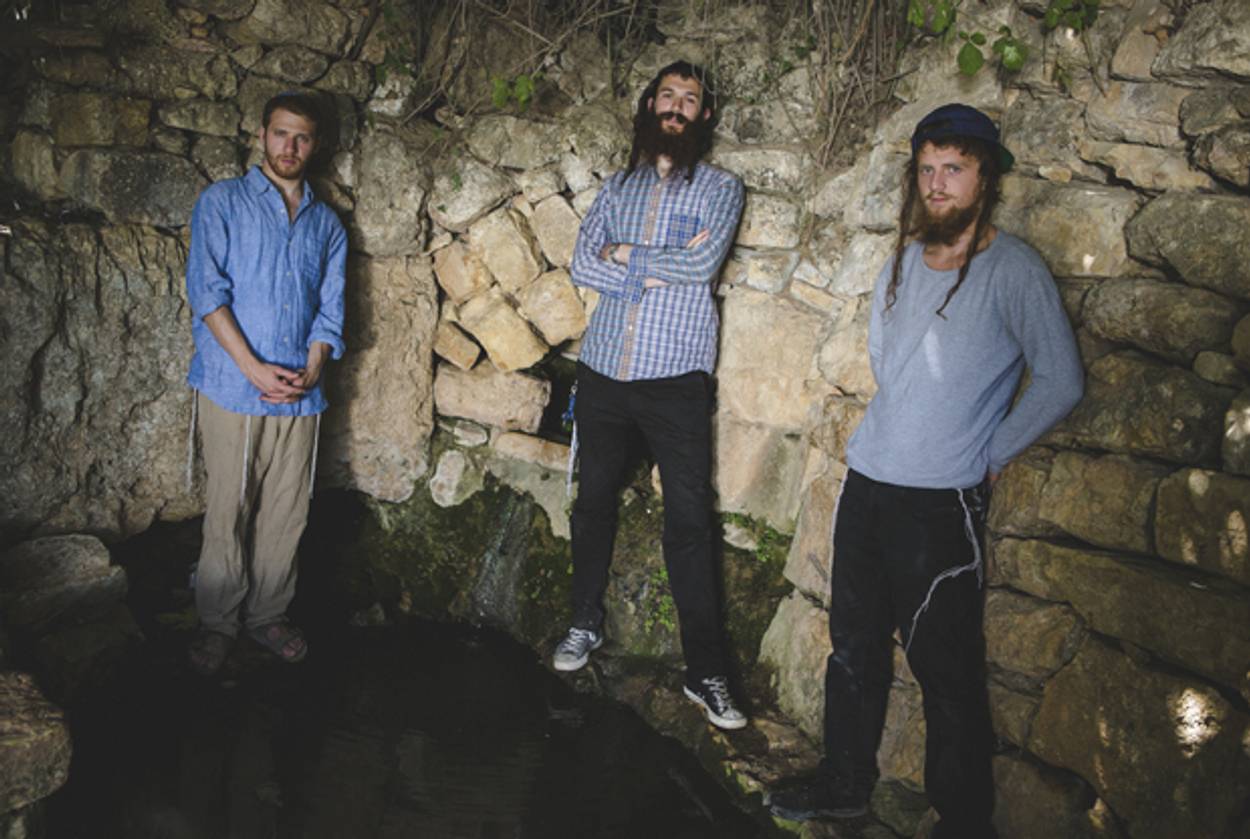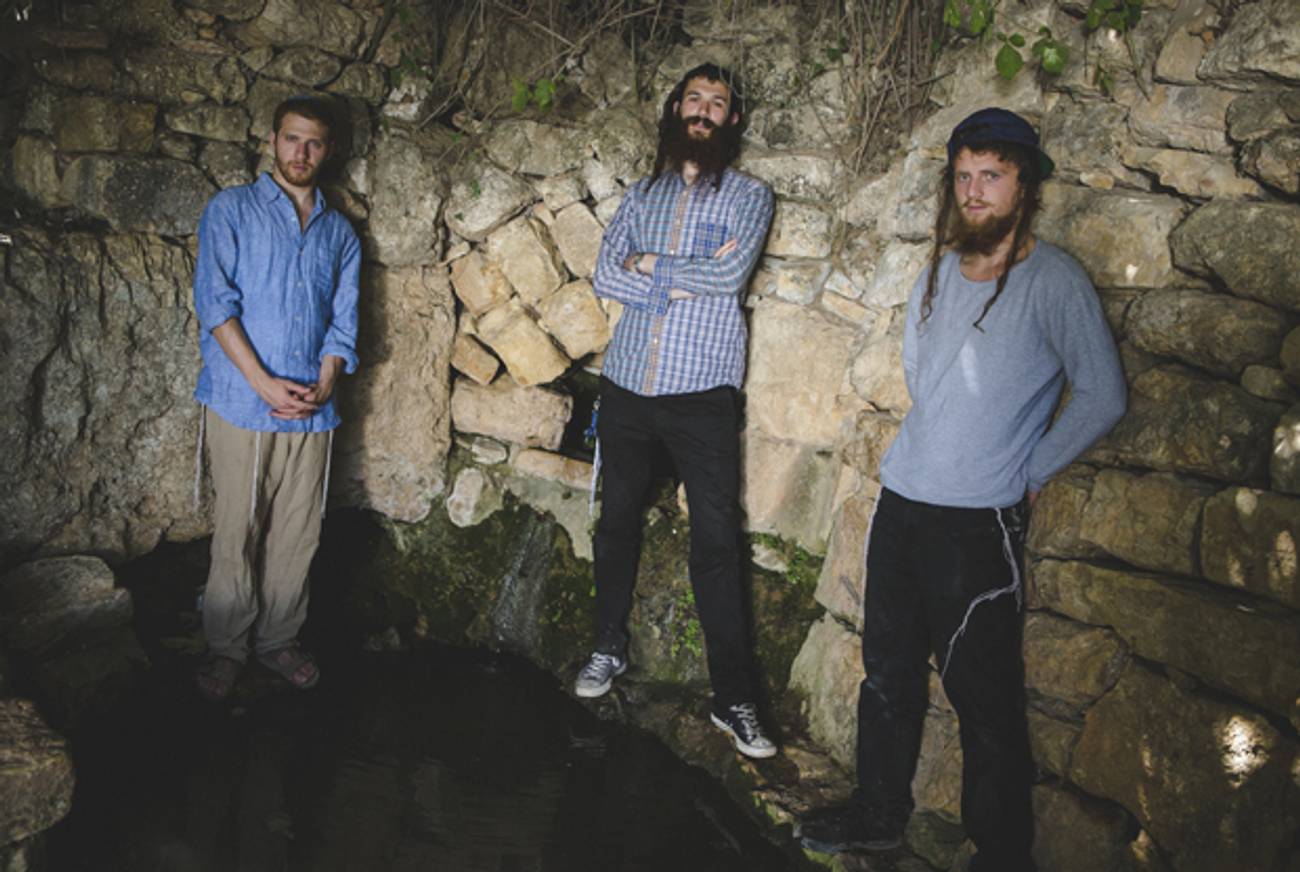The Folk Band Named After a Hasidic Rabbi
Zusha’s wordless melodies captivate fans. Just don’t call them a Jewish act.




Selling out an early Sunday night show at the Mercury Lounge on Bowery is nearly unheard of. But on this past Sunday night, standing before a sold-out crowd, Elisha Mlotek told a sobering and existential tale of the Hasidic Rabbi Zusha of Anipoli, his band’s namesake. Zusha, Mlotek explained, bemoaned his life on his deathbed with the self-admonition, “Zusha, when I pass from this world to the next, I will be asked, ‘Zusha, why weren’t you Zusha?’”
On one hand, the wordless original niggunim, or religious melodies, chanted by Shlomo Gaisin, the band’s towering, bearded, and frocked frontman, a forceful and far-ranging vocalist, struck me immediately as a tribute to Zusha’s Hasidic heritage. He offered at once crescendos of musical mastery and nuanced arpeggios of exploratory, religious incantation. He was at once the band’s main instrument and vocalist, offering a ceaseless melody and solo above the backing band, vocals, and harmonies. His voice’s range and character conjured a mix of Chris Martin and Regina Spektor, though he also channeled musical instrumentation—saxophone, guitar—in his wordless and practiced improvisations. During a vocal interlude, he suggested that the wordless form offers audience members the space to insert their own language into the melody—inspired by, perhaps, a Hasidic theology founded on a theory of experimental poetry.
Yet despite the obviously Hasidic origins of the band’s musical form, in interviews band members have been quick to dispute the label of “Jewish musicians.” As they describe it, they share a universal message of ecstatic and contemplative music outside particular religious definitions.
I watched as Zusha, moving beyond its liturgical roots, displayed a masterful comfort improvising and unfolding its complex melodies’ parts to fully realize a niggun—perhaps heeding their namesake’s call for an authentic, personalized self. Zusha’s audience also seemed to adapt well to the variations on the Jewish musical tradition, matching movements—if not dress—with the band’s members. Each niggun, accompanied by back-up vocals from Mlotek, a percussionist, and guitarist Zachariah Goldshmiedt, as well as a live band of bass, trombone, drums, and keys, became wildly intricate.
There was a heavy jazz influence in the band’s scales and propensity for exploration—and a nod, in its leisurely and calm pace, to the cadences and rhythms of reggae and surfer-rock. Each song felt fully developed, encoding memories in audience members for eternal looping, I’m sure. Indeed, while Zusha played for 75 minutes on Sunday, they didn’t play more than eight songs.
And visually, as with its music, Zusha surprises by projecting a folk-Hasidic sensibility infused by contemporary aesthetics—matching perfectly the eclectic mix of traditional and hip dress among last night’s audience members. According to Gaisin, the group’s modern, neo-Hasidic swagger is sourced in “ancient roots.” The audience, who Gaisin called a “holy eclectic gathering of souls,” followed the bandmates’ default pose: eyes-closed, shuckling, as if in a prayer trance. Goldschmiedt described the crowd as “so many holy people who are all thirsting for some positivity and meaning in their music and in their lives.” Zusha, through its striking visual presentation and musical complexity and contradiction, encourages in its audience a holy mission.
These recent college graduates are the latest, if most original, in a short line of recent innovators in the Brooklyn neo-Hasidic folk scene (Matisyahu, Sway Machinery, and Levi Robin, for starters). But Zusha’s music transports the listener. In the cavernous darkness of the swaying, drinking—and yes, bearded—crowd on Sunday night, I couldn’t help but imagine myself at a Rebbe’s tisch in, say, the darkened Slonim basement in Jerusalem or the illuminated, cavernous Bobov of Borough Park, chanting and being subsumed by an infinitely translatable wordless tune.
So if you do purchase and listen to Zusha’s EP, out today, I recommend you see them live as well: the difference between the two experiences lies somewhere between praying communally and praying alone. You can see them perform Nov. 5 at a reading of “Radzyn,” an illustrated series about shtetl life.
Hillel Broder is a doctoral student of English at the CUNY Graduate Center and a high school English teacher at SAR High School in the Bronx.
Related: Basya Schechter Mixes Prayer Songs With Brass, Oud, and Radiohead
A Hasidic Girl Band Gears Up for Its Debut at a Storied Rock Venue
Hillel Broder is a doctoral student of English at the CUNY Graduate Center and a high school English teacher at SAR High School in the Bronx.